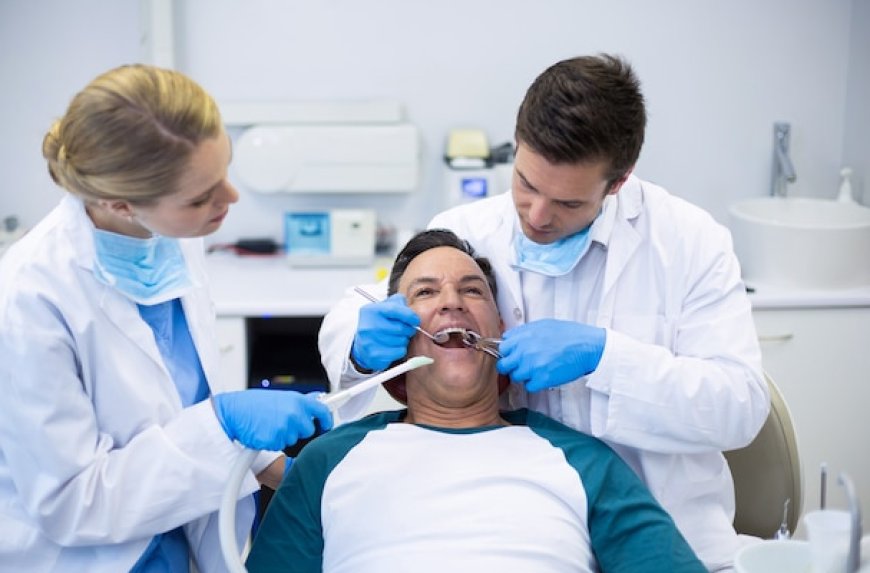Aftercare and Recovery Tips for Wisdom Tooth Extraction Wisdom Teeth Extraction Explained
A wisdom tooth, also known as a third molar, may become impacted if it does not have sufficient space to develop. If a wisdom tooth is impacted and causes pain, infection, or other dental issues, a dentist or oral surgeon may need to remove it.

The removal or extraction of wisdom teeth removal Georgetown KY is a typical dental procedure to take out the third molars, which usually come in during late adolescence or early twenties. The process involves a cut to access the tooth, which may involve removing bone, splitting the tooth into parts, and finally removing it. Following extraction, the wound is sutured and compressive gauze is applied to manage hemorrhage.
A wisdom tooth, also known as a third molar, may become impacted if it does not have sufficient space to develop. If a wisdom tooth is impacted and causes pain, infection, or other dental issues, a dentist or oral surgeon may need to remove it. Some dentists and oral surgeons advise removing wisdom teeth, even if they are not causing any issues. These teeth can cause issues down the line.
The Case for Deletion
The last permanent teeth to emerge in the mouth are the wisdom teeth. Teeth typically begin coming through the gums between the ages of 17 and 25. They may not arrive fully or at all. Not everyone's wisdom teeth develop and appear. For many people, wisdom teeth emerge just like their other molars, without any issues.
Most people have had impacted wisdom teeth. There isn't enough space in the mouth for these teeth to erupt normally.
An Impacted Wisdom Tooth Can:
Grow towards the second molar at an angle.
Grow towards the back of the mouth at an angle.
The wisdom tooth grows at a right angle to the adjacent teeth, resembling a position where it is embedded within the jawbone.
The impacted tooth grows straight up or down like other teeth but remains lodged within the jawbone.
The Procedure is Carried Out.
Your dentist or oral surgeon may use one of three types of anesthetics.
Your dentist or oral surgeon administers local anesthesia with one or more injections at the site where the wisdom teeth removal Georgetown KY is being extracted. You will typically be given a medicine to apply to your gums by your dentist or surgeon beforehand to make the injection more comfortable. You will remain awake during the tooth removal procedure and may feel some pressure and movement, but pain should not be experienced. Before you get a shot, your dentist or surgeon likely will apply a medicine to your gums that will make the injection more comfortable. You're awake during the tooth removal. You'll feel some pressure and movement, but you shouldn't feel pain.
Administering
Your dentist or oral surgeon administers medicine through an IV line in your arm to help you feel calmer, less anxious, and sleepier. The procedure will be painless and you will recall little of it. After you become relaxed and feel sleepy, you'll also receive medicine to numb your gums. You'll also get medicine to numb your gums after you become relaxed and feel sleepy.
In cases where a procedure is deemed complex, you may be administered general anesthesia. You can inhale medicine through your nose, have an IV line inserted in your arm, or have both treatments. After that, you fall asleep. Once you are asleep, the surgical team will insert a breathing tube linked to a ventilator.
This machine will provide you with oxygen. During your surgical wisdom teeth removal Georgetown KY, a doctor known as an anesthesiologist, or a certified registered nurse anesthetist, monitors your medication, breathing, temperature, fluids, and blood pressure. You won't experience any pain and won't recall the procedure. Medication is also administered to alleviate post-surgical pain. Medicine also is given to help with pain after the surgery.


















































































